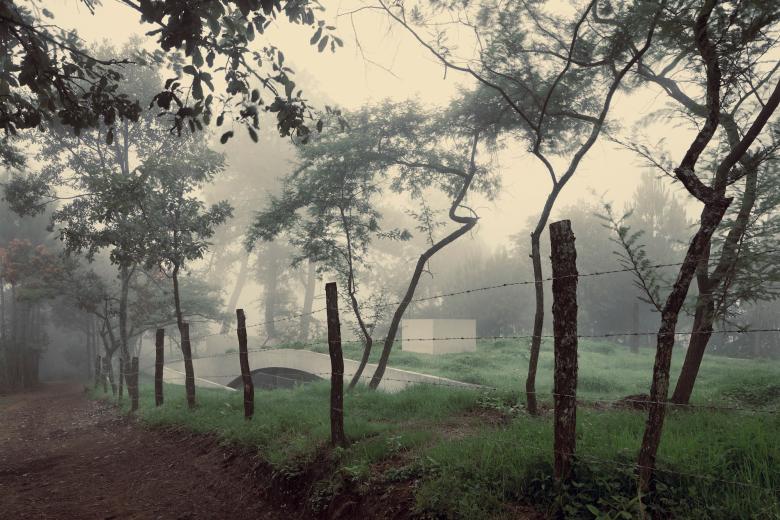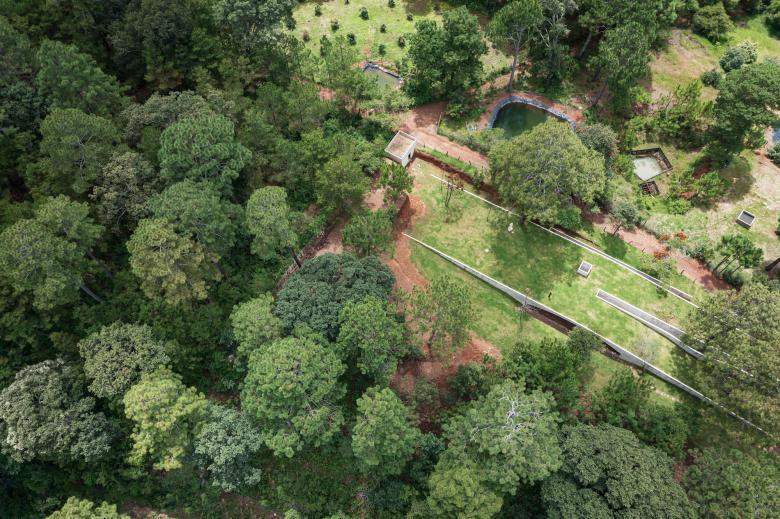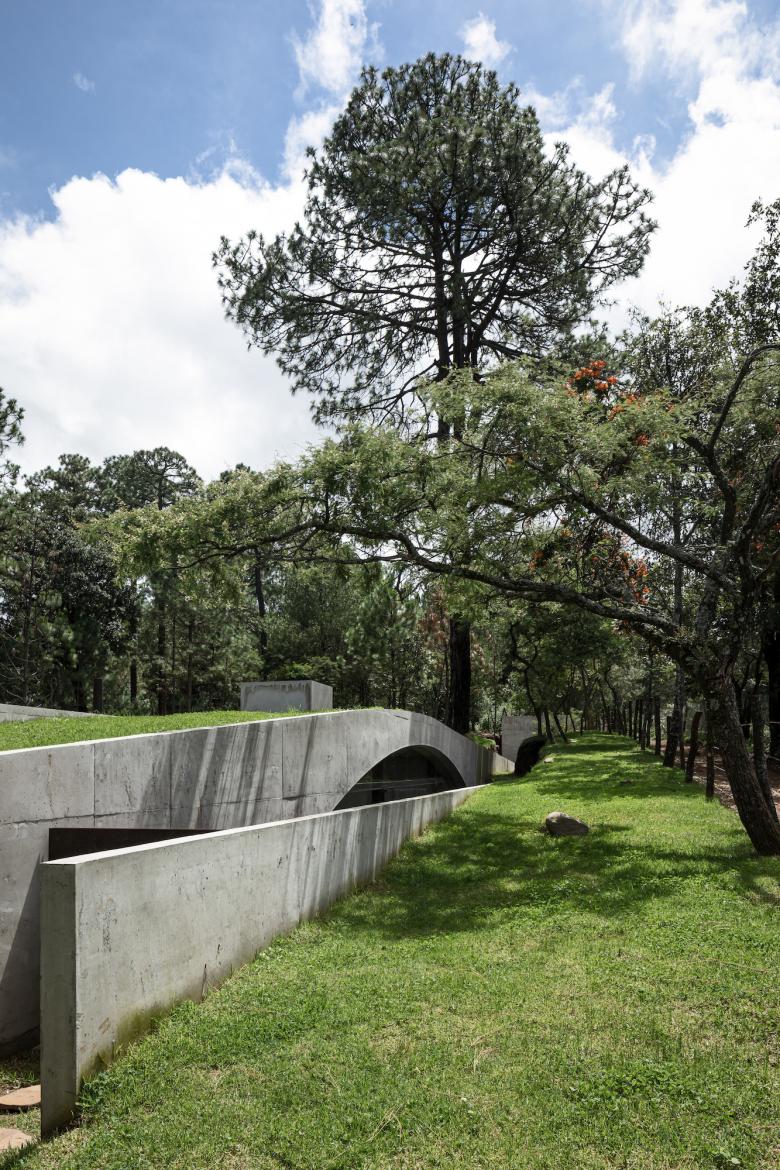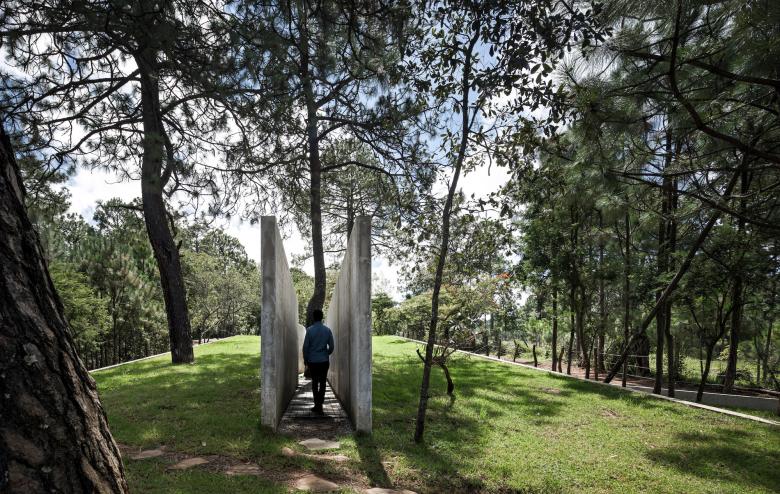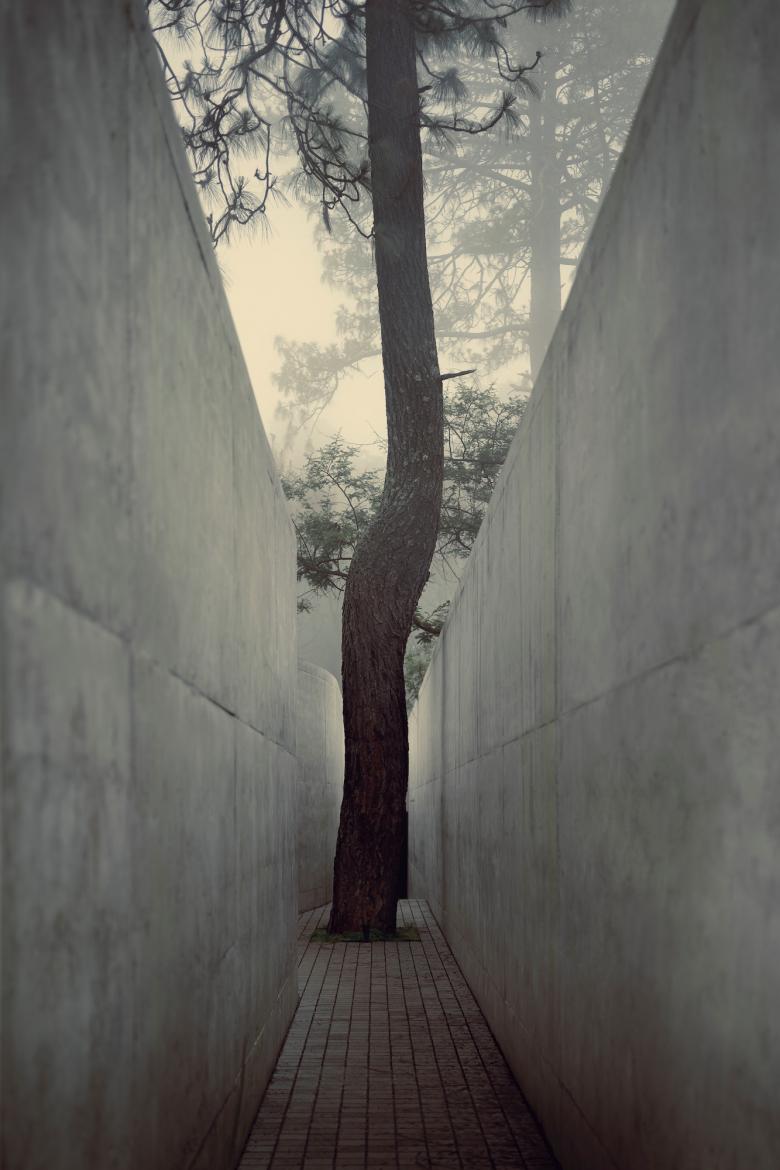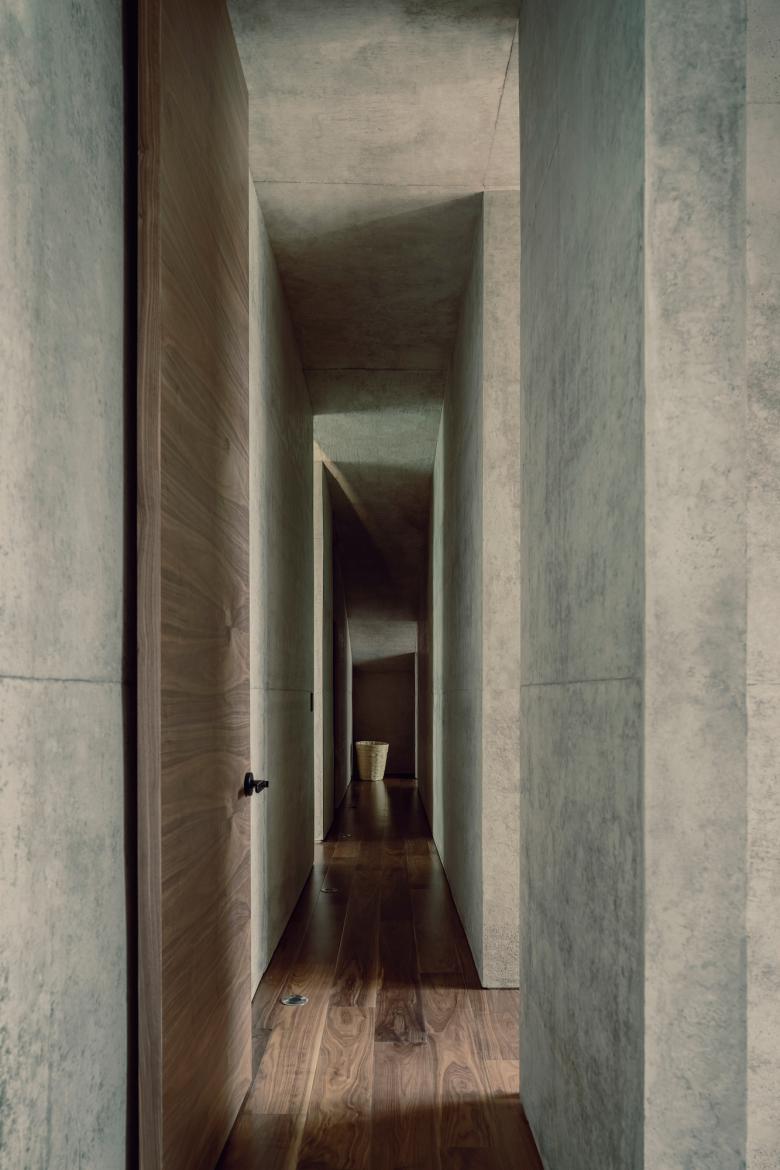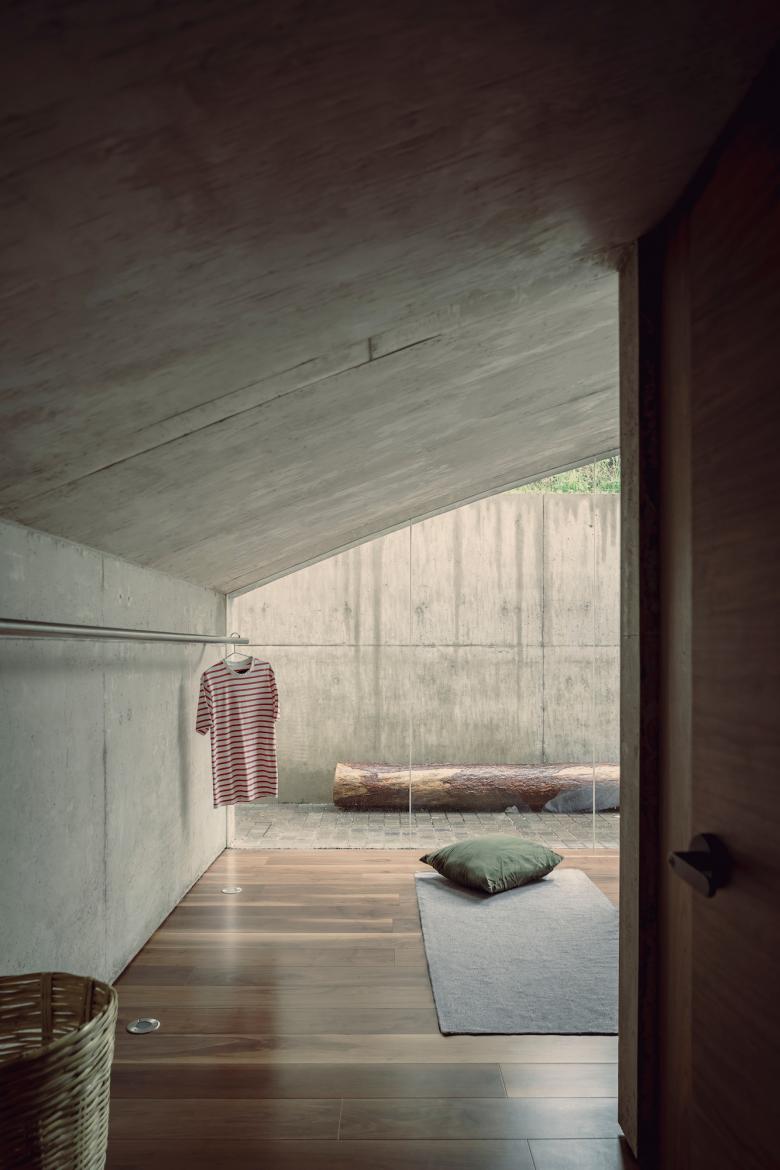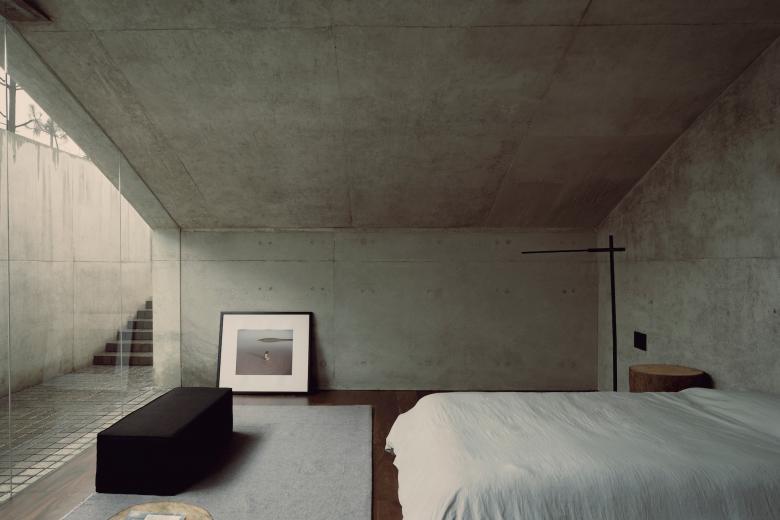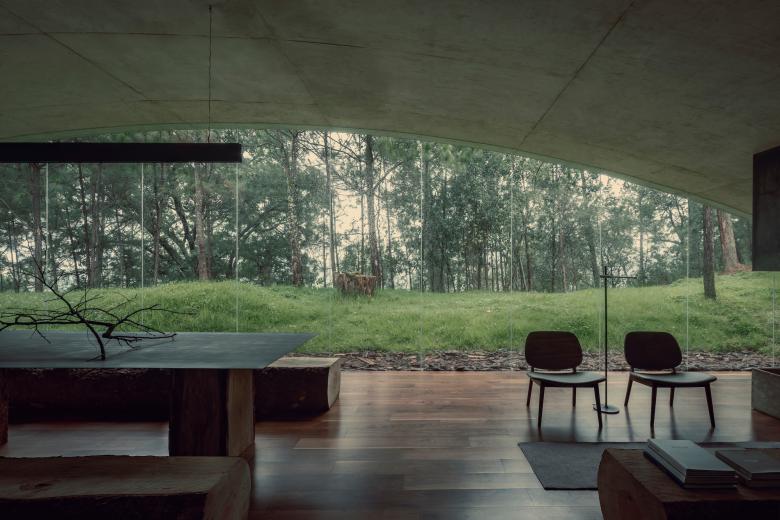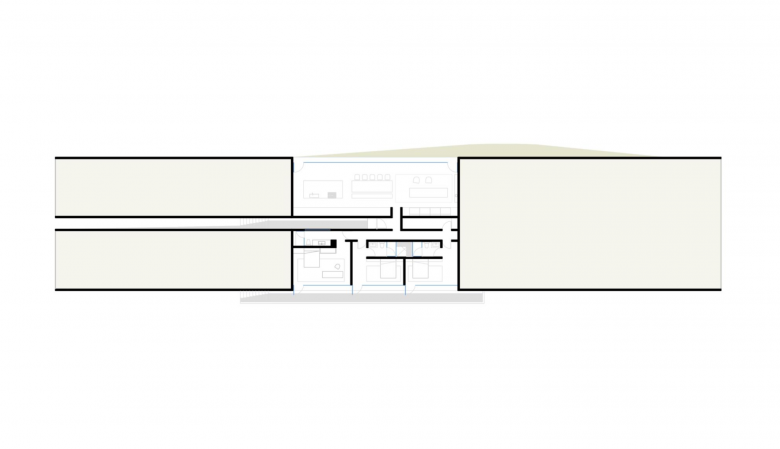The Hill in Front of the Glen
HW Studio
18. 10月 2021
Photo: Cesar Bejar (All images courtesy of v2com)
The inspiration behind this project is derived from carefully listening to the subtle murmurs and whispers of environments like this, as well as the client's search for protection and shelter.
Location: El Vaquerito, Morelia, Michoacán, Mexico
Architectural Firm: HW STUDIO
- Lead Architects: Rogelio Vallejo Bores and Oscar Didier Ascencio Castro.
- Project Team: Sergio Antonio Garcia Padilla, Jesus Alejandro Lopez Hernandez, Alberto Gallegos Negrete.
Gross Built Area: 250 m2
Photo: Dane Alonso
How can one feel protected? What can be done when one feels vulnerable? This question was accompanied by an image, or perhaps a memory: a frightened child covering himself with a light bed sheet as he peeks out to make sure he can see what is going on around him.
Pulling a bed sheet over ourselves is a very elemental act that alludes to the most basic part of the self; a bed sheet hides, protects, wraps, and creates a space beneath it that is so safe and intimate as to keep away any spirit, ghost, or demon that may be surrounding the room.
At the same time, this project generates a continuity in the beautiful living surface around the land, forming a new hill in a place already surrounded by many.
Photo: Dane Alonso
The architecture is like an accent on the words of a poem, like a comma or a question mark, but never the actual poem itself. The poem is already written by the pines, the oaks, the sweet acacia, the fireflies, the road, the fence, the neighbor's water well, the earth, the orchard, and the nightingale.
Four concrete walls contribute accents to the poem, surprisingly emerging from the landscape; two of them bearing the land of the new hill created by raising the bed sheet, and two others framing the access as they escort guests into the house.
Photo: Dane Alonso
The path is wide enough to walk comfortably alone, yet narrow enough to discourage accompaniment. Visitors are cast into a pilgrimage of solitude that leads to an old tree with such a significant presence that it was necessary to distort the linearity of one of the walls with a gentle curve to be able to pass next to it...so close that it is even possible to graze it.
Photo: Cesar Bejar
After crossing the tree threshold, going down a few solid pearled stone steps, and opening a heavy steel door, a concrete vault stands, supporting the loads of the green bed sheet that rests upon it; providing a sensation of being inside a cold, dark, but strangely cozy cave.
Photo: Cesar Bejar
Concrete was chosen as the main material due to a dream about this new rock melting while inevitably interacting with the forest, changing colors... grays that turned to greens, blacks, and yellows that were gradually incorporated into the environment. The flooring emphasizes an aroma of wood that is perceived when surrounded by pine trees, providing balance to the cold temperature of the concrete; and finally, steel that, with time and rainfall, acquires an appearance like tree bark.
Photo: Cesar Bejar
As for the spatial organization, public areas on the left side of the house are completely exposed to the wooded ravine, and on the right side are open more timidly to a courtyard with treetop and sky views.
Photo: Cesar Bejar
It was important to have very few references of elements that would connect to a specific moment in time, so the refrigerator and appliances were hidden, the lighting was arranged very discreetly, and only the four main materials were included: stone, wood, concrete, and steel. It was very important for the client to preserve the rough and primitive atmosphere of being in the mountains.
